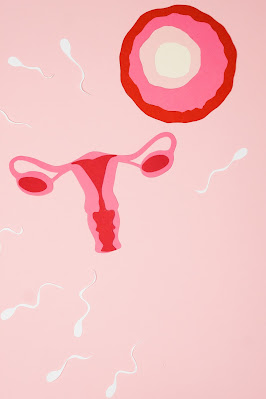Demystifying Polycystic Ovary Syndrome (PCOS): Causes, Symptoms, and Management Guide
Polycystic Ovary Syndrome (PCOS) is a common endocrine disorder that affects millions of women worldwide. It is characterized by hormonal imbalances, reproductive difficulties, and a range of symptoms that can impact a woman's physical and emotional well-being. In this article, we will delve into the causes, symptoms, and management strategies for PCOS.
I. What is Polycystic Ovary Syndrome?
Polycystic Ovary Syndrome is a complex hormonal disorder that affects the ovaries. It is characterized by the presence of multiple small cysts on the ovaries, irregular menstrual cycles, and high levels of androgens (male hormones) in the body. While the exact cause of PCOS remains unknown, researchers believe it involves a combination of genetic and environmental factors.
II. Common Symptoms of PCOS:
III. Diagnosis and Medical Management:
Medications:
II. Common Symptoms of PCOS:
Menstrual Irregularities: Women with PCOS often experience irregular or absent menstrual periods due to disrupted ovulation patterns.
Excessive Androgen Levels: Elevated levels of androgens can lead to symptoms such as acne, excessive hair growth (hirsutism), and male-pattern baldness.
Polycystic Ovaries: On an ultrasound examination, the presence of multiple small cysts on the ovaries is a common characteristic of PCOS.
Weight Gain and Difficulty Losing Weight: Many women with PCOS struggle with weight management, as the condition can make it challenging to maintain a healthy weight.
Insulin Resistance: Insulin resistance, a condition in which the body's cells have reduced sensitivity to insulin, is often associated with PCOS and can contribute to weight gain and an increased risk of type 2 diabetes.
III. Diagnosis and Medical Management:
Diagnosing PCOS involves a combination of medical history assessment, physical examination, blood tests to evaluate hormone levels, and ultrasound imaging of the ovaries. Once diagnosed, the management of PCOS focuses on addressing specific symptoms and reducing the risk of long-term complications. Treatment options may include:Lifestyle Modifications: A healthy lifestyle incorporating regular exercise, a balanced diet, and weight management strategies can help improve PCOS symptoms and overall well-being.
Medications:
Depending on the individual's needs, various medications may be prescribed to regulate menstrual cycles, reduce androgen levels, manage insulin resistance, and control other related symptoms.
Fertility Treatments: For women trying to conceive, fertility treatments such as ovulation induction or in vitro fertilization (IVF) may be recommended.
IV. Psychological Impact and Emotional Well-being:
PCOS can have a significant impact on a woman's emotional well-being, leading to feelings of anxiety, depression, body image concerns, and reduced self-esteem. It is essential to address these psychological aspects and seek support from healthcare professionals or support groups to promote overall mental health.
V. Long-Term Health Considerations:
V. Long-Term Health Considerations:
Women with PCOS are at an increased risk of developing certain long-term health conditions, including type 2 diabetes, cardiovascular disease, and endometrial cancer. Regular health check-ups, screening tests, and proactive management of risk factors are crucial to prevent or manage these potential complications.
Polycystic Ovary Syndrome is a complex hormonal disorder that affects women of reproductive age. It presents with a range of symptoms and can impact various aspects of a woman's life. Early diagnosis, appropriate medical management, lifestyle modifications, and emotional support are key to effectively managing PCOS and improving overall quality of life for those affected. By raising awareness and promoting research, we can continue to enhance our understanding of PCOS and provide better support to women living with this condition.
Polycystic Ovary Syndrome is a complex hormonal disorder that affects women of reproductive age. It presents with a range of symptoms and can impact various aspects of a woman's life. Early diagnosis, appropriate medical management, lifestyle modifications, and emotional support are key to effectively managing PCOS and improving overall quality of life for those affected. By raising awareness and promoting research, we can continue to enhance our understanding of PCOS and provide better support to women living with this condition.




Comments
Post a Comment